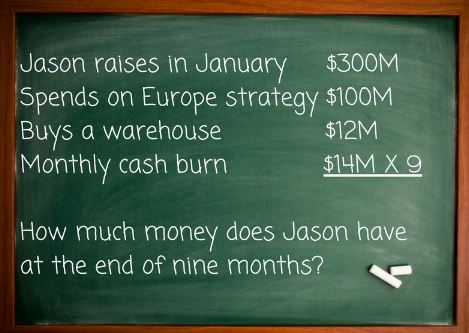If you’re a business owner, chances are you’re a little neurotic. I was, too.
(Some clients might argue that I still am!)
When you started the company, you were juggling seven different balls at once while the ground shifted beneath you in an endless earthquake. You were responsible for hiring, for developing a minimum viable product, getting enough traction to pitch to investors, and inhaling coffee in between meetings with investors, clients, and lawyers.
But startups are like kids. They rapidly shift from one stage to another, from newborns to infants, to preteens and then adolescents, and their needs evolve. This means the adults in their lives – us, the entrepreneurs – have to adapt to these changes to keep up. Helicopter parenting rarely contributes to meaningful development.
Let It Go: Breaking Up with Micro Management
We can’t keep absolute control over everything, despite the joy we might get when we feel we’re looped in on everything happening in the company. This need for control – our narcissism – leads us to believe that we’re needed to be a part of every decision. It is hard for us to feel comfortable with delegating responsibility, because obviously, “we do it better”. Also, in the time it’ll take you to explain to the other person how to do it, you’d have done it yourself.
Eyal Waldman, CEO of Mellanox, summed it up best.
When the company was a startup, I was much more involved in all the various processes of the firm. I miss that. I used to be more hands on. Now I need to talk a lot. It is harder to play in the adult playing field, because if you fail, now the drop from the top is steeper and the fall is harder.
We forget that we need to let go of certain things to be better at certain other, more important things. We need to learn how to fire ourselves.
And very few entrepreneurs manage to do that – because that takes an entirely different set of skills, skills that don’t come naturally. You need to trust people, patiently guide them, build systems and processes that are idiot-proof, and continue to hire people that are smarter than you.
Since there’s only so much time and energy you have, there’s an opportunity cost involved when you do something. As a founder, you should focus on tasks where your results-to-efforts ratio is the highest.
One of my clients did it best – he just raised a lot of money at a very high valuation. His present ARR is $2M and his company was valued at $60 mn in the last fundraise – thirty times of his current revenues, where it should have honestly been about 10x! Even if he doubles or triples his revenue by the next fundraise, his valuation would not budge by a lot – which is a complete disaster. But this guy is smart – he has about 18 months and he is thinking backwards: what pitch deck in 18 months would justify a higher valuation, and how do I get there?
Everything else has to stop. And with that cleared up, he had an epiphany. He can’t reach $1 mn run rate per month with what he currently has: two critical features need to be added to his product in order to achieve that.
This was possible because he had a clear mind and had cleaned out the day-to-day clutter from his to-do list.
I’d like to end with a simple cautionary note. If you’re ending multiple days with a to-do list that looks bigger than it was in the morning, you’re doing something wrong. And in your heart-of-hearts, you already know that.
In my next post, I’ll share a three-legged framework I’ve seen work best for founders that have scaled up successfully.
Until then, tell me what systems and processes work for you, and how you deal with firing yourself!











